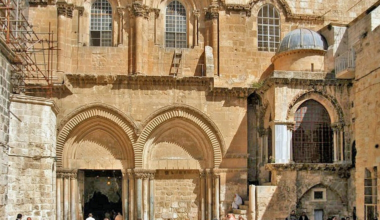This is a slightly updated version of an article that was first published and commissioned by the Espace de Libertés, aka the European Secular Network.
Religious leaders have been involved in the government of England for around a thousand years. Originally, many of them were abbots, although their role was less spiritual than a recognition of the huge lands over which they had been granted or wrested control. Catholic clerics formed the majority of those sitting in the House of Lords or its forbears until the 16th century. Then, after King Henry VIII’s break with the Roman Catholic Church, the abbots’ places were taken by 26 (Anglican) bishops, as a result of which clerics no longer held the majority of seats.
Today, in theory, the King appoints bishops of the (Established) Church of England in his capacity as the Supreme Governor of the Church, but this is on the nominal advice of the Prime Minister, whether an Anglican or not, who in turn almost always endorses recommendations for appointments made by the Crown Appointments Commission.
There are many more than 26 Anglican bishops, but the most senior of the 26 have the right to attend the House of Lords and constitute the Bishops’ Bench. The archbishops of Canterbury and York and the bishops of London, Durham, and Winchester are ex officio members; the remaining 21 have been allocated to the longest-serving bishops from other dioceses. However, this protocol has been temporarily overridden by provisions designed to increase the proportion of female bishops on the Bishops’ Bench, the first of whom were consecrated in 2016.
It is very unlikely that the Bishops’ Bench vote could override the consensus of other peers, as even the full 26 constitute only 3% of the membership of the Lords, which is a ludicrous 800. The bishops were vehemently opposed to the Marriage (Same Sex Couples) Bill 2013, which permitted religious bodies that wished to conduct same sex marriages to do so, but it didn’t require, far less permit, the Church of England to conduct such marriages. Yet only nine bishops voted against it, four abstained, and the others were not present to vote.
Religious influence doesn’t end there, however. The Anglican bishops have a compulsory retirement age of 70, and it is quite usual for bishops to be appointed on retirement as life peers, where they continue as members of the House of Lords, but simply not sitting as part of the Bishops’ Bench. And other religious leaders, for example the former heads of Protestant denominations or a Chief Rabbi, are routinely ‘ennobled’, i.e. appointed as peers. So there is a significant number of peers who are current or former senior religious figures. Very few could be regarded as being other than socially conservative. Furthermore, the average age of peers is 61, which makes them much more likely to be religious and socially conservative than the elected house of parliament, the Commons (average age 25 years younger), and the general population.
Those on the Bishops’ Bench have a privileged position in the chamber, sitting on the Government side closest to the throne. Convention dictates that when a bishop rises to speak, whoever is speaking is expected to stop. (One—but only one—of the peers, a National Secular Society supporter, pointedly ignores this protocol and continues to the end of his speech.) The bishops’ presence in Parliament also gives them direct access to ministers, and a letter from a bishop to a minister is supposed to be answered practically by return; no other peers enjoy such a privilege. Bishops have no qualms about tabling amendments to bills to further privilege the Church. In recent years the (recently resigned) Archbishop of Canterbury has annually selected almost as of right a subject for an all-day debate. No other peer has attempted to do so. And the Church’s Synod can even initiate legislation into Parliament, which no other body can do, albeit acceptance of such draft legislation is subject to a vote.
An unspoken condition for appointment as a bishop is conservative social views, particularly on homosexuality. Some might regard this as hypocritical given that it is widely believed that a number of the bishops are gay and two at least are reputedly in a partnership with another bishop.
Bishops have repeatedly voted over the last 50 years or so in the Lords to resist liberalisation on ethical issues for which there is strong public support, such as same sex marriage and assisted dying. Historically, they have sought to foster the notion that their opinions, by dint of coming from Church doctrine, contain some enhanced moral authority.
But that perception is crumbling fast. The bishops’ continued resistance to same sex marriage and assisted dying are now regarded by even most religious people and three-quarters of the population as irrelevant and out of date. Several inquiries into (mainly child) sexual abuse by clerics and other scandals have shown the Church’s repeated failure both to take action against perpetrators and to protect survivors of such abuse. The Archbishop of Canterbury’s own failings in this area led to his being forced to resign in December last year. Only one other Archbishop of Canterbury has been expelled by popular pressure, and that was in 1381. The Archbishop’s place is being temporarily filled by the Archbishop of York, himself discredited by numerous accusations of protecting senior clergy who have been involved in sexual misconduct or failing to take action against others who have.
Most bishops are ignoring this unprecedented crisis, hoping it will dissipate, rather than making plans to rectify the problems it has exposed. No wonder then that a senior (and courageous) female bishop has described her colleagues publicly as a ‘boys’ club’ whose priority is to shield bishops from censure over their failures to report clerical child sexual abuse to civil authorities. Her colleagues are now ostracising her.
The Church is effectively leaderless. It is also close to schism over whether or not to allow same-sex marriages in church and whether to outsource safeguarding of abuse victims to an independent agency, as has been widely urged.
Until very recently, few parliamentarians have called for the removal of the Bishops’ Bench, but the number doing so has grown markedly. The Church recognises that the current version of the Bishops’ Bench is unsustainable. Its strategy to preclude a total removal of the Bench is likely to be conceding some of the 26 seats to those of other denominations and faiths—our nightmare outcome.
The latest attempt to introduce assisted dying legislation is proceeding through parliament but is not assured of success despite being as conservative as possible: it does not, for example, offer assisted dying for those suffering from incurable motor neurone diseases and who will face the most excruciating deaths. Even Catholic Portugal voted for this in May after overriding the Catholic president’s veto.
Even if the UK parliament fails to pass an assisted dying law, there are still other legislative assemblies in the UK that are considering doing so for their own jurisdictions. All include tight residency conditions to prevent ‘death tourism’. Legislation is proceeding in Scotland, while the Isle of Man became the first UK jurisdiction to legalise assisted dying in March. Meanwhile, following the French elections in 2024, where the right increased its share of the vote, major changes to the legislation are being proposed, supported by the Catholic Church, which are likely to delay or prevent it from becoming law.
In short, religious privilege is still an obstacle, in the UK and beyond, to progressive and popular social change.
Related reading
The Right to Die: The Freethinker and the Assisted Dying Debate Over the Years, by Daniel James Sharp
Turbulent Priest: The Story of Bishop Pat Buckley, by Charlie Lynch
Time for the morally deficient Church of England to be stripped of its privileges, by Stephen Evans
The case for secularism (or, the church’s new clothes), by Neil Barber
‘This is not rocket science’: the Disestablishment of the Church of England Bill 2023, by Emma Park
Bishops in the Lords: Why are they still there? by Emma Park









1 comment
I’m pleased to see these points about the role of religious vested interests in Parliament set out in plain English. This is a horrifying example of religious privilege. I don’t hear these points being made in the mainstream media.
Your email address will not be published. Comments are subject to our Community Guidelines. Required fields are marked *
Donate